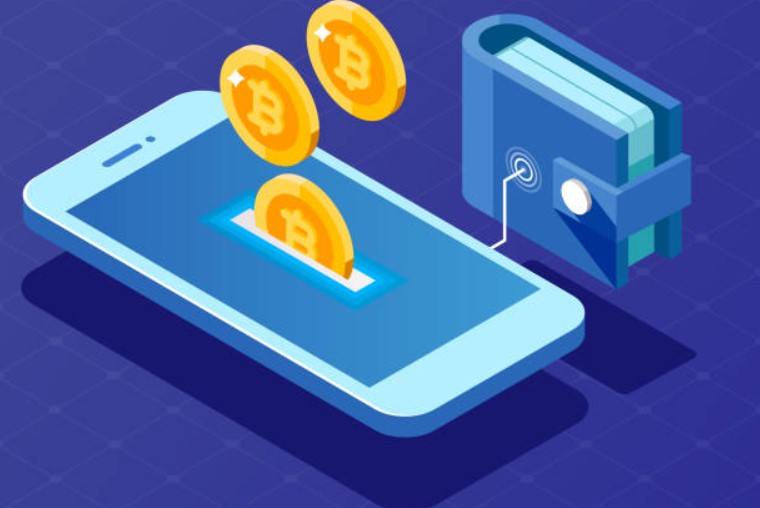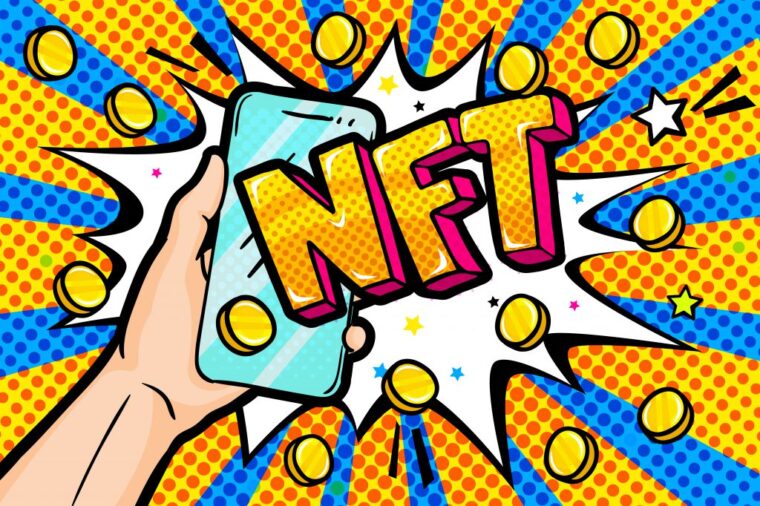“Blockchain”, “cryptocurrency”, and “NFTs”: these are the big buzzwords that have suddenly engulfed not just tech news headlines but mainstream headlines. With blockchain as the underpinning technology that truly has game-changing capabilities, it’s the speculative market pricing of crypto and non-fungible tokens (NFTs) that have attracted so many people to these new digital ventures.
Now, it all looks to become far more intimately involved in gaming, as we7 has been finding out. The big story right now centres on Axie Infinity – a blockchain-based, NFT-driven PC and mobile game – as sales of the in-game NFTs on its market have hit $4 billion in sales. It would appear as though it’s a sign of things to come, but how committed is gaming to the likes of crypto and NFTs?
Cryptocurrency looks to be entrenching itself in gaming

While a great deal of the fuss around cryptocurrencies pertained to the price of leading coins, such as Bitcoin and Ethereum, and the way in which a single tweet from someone like Elon Musk could surge a so-called meme coin to the upper echelons – as he did with Dogecoin – there is useful technology behind the headlines.
Cryptocurrencies offer a way for people to make digital monetary transactions that can be trusted, don’t incur fees, and are constantly verified by blockchain technology. Furthermore, the point of the original cryptocurrency, Bitcoin, was to eventually unseat fiat currencies due to the creator’s lack of trust in central banks. Away from the stock market-esque speculative investing, cryptocurrencies do have many uses. In gaming, the most natural way in which the likes of Bitcoin have come into play is as an alternative accepted currency, particularly by international platforms.
Not needing to worry about exchange rates or verification delays, the truly universal currency can be used by any consumer in the world to pay for games or in-game content, often via a third-party facilitator like PayPal. However, some games have gone further to integrate the earning of cryptocurrency into titles.

The crypto-earning mobile app game THNDR Bay is one such example; here, as you complete levels of the bubble shooter, you earn tickets that go into a daily raffle. If one of your tickets is pulled, you win Bitcoin that can then be withdrawn. With in-app purchases available, the prospect of having more tickets in a Bitcoin draw will encourage many to make microtransactions to complete more levels and hope for a better prize in the daily draw.
Even with this and other similar Bitcoin-centric app games like Bitcoin Hero, the idea of earning Bitcoin through play is a niche, to say the least.
It’s as a payment solution that cryptocurrencies will continue to expand their gaming footprint. While some have been stop-start in their acceptance of crypto payments, Microsoft, Newegg, Zynga, Green Man Gaming, and Twitch have all been on board with Bitcoin as a viable way to pay. This particularly helps gamers who wish for more anonymous transactions, such as those in nations where content is cut due to local restrictions. A similar line of thinking, along with the added security, has also powered the rise of Bitcoin casinos. At all of the best Bitcoin casinos graded by VegasSlotsOnline, players benefit from global operations, additional security and transparency, and anonymity. Accepting Bitcoin opens up the entertainment platforms to a greater number of players, with further benefits including low fees, instant transactions, and provably fair casino games, which allow players to verify the fairness of the games.
Integrating NFTs isn’t as straightforward as cryptocurrencies

To begin, you need to know the difference between these digital entities. Even though both technologies are made possible by blockchains and have been hailed in the mainstream news as “moneymakers”, cryptocurrencies and NFTs are distinctly different entities. The key is that cryptocurrencies like Bitcoin can be exchanged and replaced while NFTs, being ‘non-fungible,’ can be exchanged but not replaced. As such, each NFT is unique in some way, allowing for a sense of digital ownership and authenticity. In theory, games that employ business models like in-game randomization or any form of microtransaction could make their digital items into NFTs to both guarantee ownership or rarity and take a cut from re-sale. As you would imagine, many of the highest-earning companies have started to weigh in, but so have smaller publishers.
CEO Atsushi Inaba and game designer Hideki Kamiya of Platinum Games – the creators of Bayonetta and Astral Chain – have outright stated that they don’t have any interest in NFTs because they don’t benefit anyone other than publishers seeking to pry more cash out of gamers. Itch.io, the indie games storefront, has also denounced NFTs in gaming as well as those who wish to implement them, calling them “a scam” in a February tweet. This all comes at a time when Ubisoft has rushed out its own store and currency, Ubisoft Quartz, to shift NFTs on Ghost Recon: Breakpoint.
Electronic Arts CEO Andrew Wilson has also labelled NFTs as “the future” of gaming, while the likes of Square Enix received tremendous backlash for its statement of intent to engage in NFTs. Team17, a major publisher of indie games, saw somewhat of a revolt from the small studios that it publishes games for after it sought to introduce NFTs to its popular Worms franchise. As opposed to selling “art” online in the form of NFTs, the tokens seem to be best applied to single-game ecosystems if they are to take off in gaming, which completely goes against the decentralised ideals of blockchain technologies.

Furthermore, very, very few games live beyond a few years with even moderate-sized player bases – even those that are purely online-based – as gamers get bored and want to try new things. Of course, this may change with the new concept of being an NFT game from the outset. Axie Infinity, The Sandbox, and Gods Unchained are all finding success in this craze period as outright NFT games. However, were publishers like EA or Ubisoft to create truly viable NFT markets for their biggest games, they’d have to tear up existing models.
Take FIFA, for example. It makes a tremendous amount of its money by selling loot boxes with player cards in each annual edition, with a new year making the previous year’s digital items defunct. NFTs coming into such a game would all but demand the destruction of annual releases in favour of a perpetual football game that gets free annual updates to keep interest up, and for cards from previous years to hold gameplay and market value. This line of thinking is plausibly why Wilson seemed to backtrack on his support of NFTs in February this year.
Cryptocurrencies look to have a place in gaming as an alternative payment method, perhaps also as a small incentive in specifically made games. NFTs, however, seem counter to the existing business model with the exception of the few highly popular, continually updating and heavily played titles, such as those pillars of the eSports industry.
